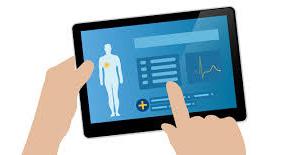
3 minute read
What COVID-19 Vaccine Should I Get? What to Tell Your Patients
Which COVID-19 Vaccine Should I Get? What To Tell Your Patients
by Sara Berg, Senior News Writer AMA
which COVID-19 vaccine did you get? This is a question that physicians and other health professionals are beginning to hear as the first wave of vaccinations is finally underway. While there are now two vaccines available that have received emergency use authorization in the United States—those made by Pfizer-BioNTech and Moderna—it is less important which one a person gets. Instead, says a leading physician expert, it is imperative that everyone simply gets vaccinated.
Share that you’d get either option
Physicians should share which COVID-19 vaccine they received, but it should come “with that disclaimer that I would have gotten whichever one was offered,” said Dr. Fryhofer. “I was able to get a dose of a vaccine, so now I tell patients which one I got. I didn't care which one it was. I just wanted to get a dose of a vaccine and I will also make sure to get my second dose in the series.”
It is important for physicians to tell their patients, “You have to decide if you're going to get vaccinated,” she said. “My recommendation to you is to go for it. Take the one you can get because the sooner you get that first dose, the sooner you can get that second dose and you have to have both doses in the series to get that 94–95% protection.”
Organizations get different types
Which vaccine a patient gets is dependent on the organization. While one organization may get the Moderna vaccine, another might have Pfizer-BioNTech.
“My hospital has both the Moderna and the Pfizer, but the most important thing is whatever you get for the first dose, you have to get for the second dose—there’s no mixing and matching,” she said. “You want to get the full dose.”
Remind that payment’s not required
“If you go someplace and they’re wanting you to pay for the vaccine, that is a red flag,” said Dr. Fryhofer. “We have all paid for these vaccines, with our tax dollars, through Operation Warp Speed.
“Now, you might be asked to show your insurance card,” she added. “The places that do administer vaccines are allowed to bill your insurance company for the administration fee, but you should not be paying.”
“I would also encourage patients to go on their department of health website and take a look at the forms that are being offered and read them,” said Dr. Fryhofer. “They're going to have to read and understand them sooner or later, and that also can give you a feel as to whether or not this place is legitimate.”
However, “the best bet is to call your physician,” she added.
Explain potential side effects
“Trust and open communication are so important,” said Dr. Fryhofer. “If you don't tell people what to expect, physicians are going to be sorry because they're going to get phone calls from patients about side effects.”
That is because after getting a COVID-19 vaccine, “most people are going to have some sort of side effect,” she said. Both vaccines “are going to cause a sore arm. You may feel a little bad, maybe a little tired, muscle aches, but it is so much better than getting COVID—and you do have to get that second dose.”
“You do expect to have more side effects with that second dose,” said Dr. Fryhofer, adding that “if day one is the day you get vaccinated ... most symptoms are going to be on day two, day three, possibly day four and then they're usually gone. But for some people, they're enough to make you not be able to go to work.”
Have patients sign up for v-safe
Once a patient does receive their first dose of a COVID-19 vaccine, Dr. Fryhofer recommends signing up for the v-safe vaccination health checker, which is a smartphone-based tool from the CDC.
“They'll text you every day and you can tell them what your symptoms are, because you're going to share your experience with others and everyone can learn from your experience,” said Dr. Fryhofer, adding that it is important to not only sign up for v-safe, but to also “get that second dose.”




